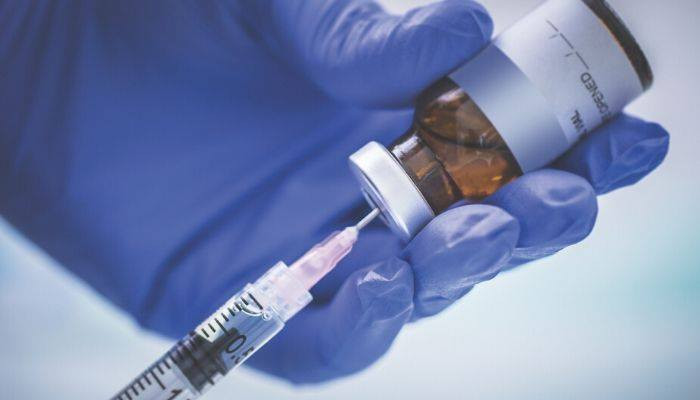An #mRNA #Vaccine against SARS-CoV-2-Preliminary Report
 3926 Wednesday, 15 July, 2020, 22:05 The severe acute respiratory syndrome coronavirus 2 (SARS-CoV-2) emerged in late 2019 and spread globally, prompting an international effort to accelerate development of a vaccine. The candidate vaccine mRNA-1273 encodes the stabilized prefusion SARS-CoV-2 spike protein.We conducted a phase 1, dose-escalation, open-label trial including 45 healthy adults, 18 to 55 years of age, who received two vaccinations, 28 days apart, with mRNA-1273 in a dose of 25 μg, 100 μg, or 250 μg. There were 15 participants in each dose group.After the first vaccination, antibody responses were higher with higher dose (day 29 enzyme-linked immunosorbent assay anti–S-2P antibody geometric mean titer [GMT], 40,227 in the 25-μg group, 109,209 in the 100-μg group, and 213,526 in the 250-μg group). After the second vaccination, the titers increased (day 57 GMT, 299,751, 782,719, and 1,192,154, respectively). After the second vaccination, serum-neutralizing activity was detected by two methods in all participants evaluated, with values generally similar to those in the upper half of the distribution of a panel of control convalescent serum specimens. Solicited adverse events that occurred in more than half the participants included fatigue, chills, headache, myalgia, and pain at the injection site. Systemic adverse events were more common after the second vaccination, particularly with the highest dose, and three participants (21%) in the 250-μg dose group reported one or more severe adverse events.The mRNA-1273 vaccine induced anti–SARS-CoV-2 immune responses in all participants, and no trial-limiting safety concerns were identified. These findings support further development of this vaccine. (Funded by the National Institute of Allergy and Infectious Diseases and others; mRNA-1273 ClinicalTrials.gov number, NCT04283461. opens in new tab). |

Alien files incoming: Trump orders government release of UFO records
116020.02.2026, 12:49
Single-dose HIV vaccine candidate induces neutralizing antibodies
526903.02.2026, 19:19
Apple ‘runs on Anthropic,’ says Mark Gurman
586701.02.2026, 23:53
Meet the Kennewick Man: Face of 'most important' ancient American revealed after 8,500 years
851725.01.2026, 17:07
Can Humanoid Robots Build Aircraft? UBTECH Partners with Airbus
945419.01.2026, 23:41
Nasa's mega Moon rocket arrives at launch pad for Artemis II mission
977218.01.2026, 17:53
China's Mars rover discovers longer water existence on red planet
1086111.01.2026, 15:31
Japan Unveils Human Washing Machine, Now You Can Get Washed Like Laundry (video)
1763801.12.2025, 20:45
